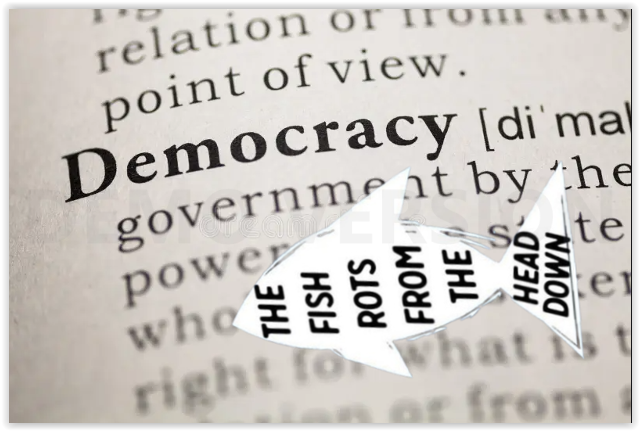When, in 2017, more than 1,000 European citizens appealed to the President of the European Parliament to sanction the hate speech against Roma people that was pouring from the parliamentary tribune, he decided to leave this petition unanswered. The systematic anti-Roma statements came mainly from the European Conservatives and Reformists group, which had 78 seats in Parliament, while the President of the Parliament Antonio Tajani was from the largest faction, the European People’s Party, holding 176 seats.
By letting anti-Gypsyism go unpunished, the EU Parliament President from the EPP sent a clear message that the Centre-Right was ready to protect and encourage the Far-Right in the EU. These developments, however, did not provoke any visible political reactions in the capital of European democracy but were met with silence by both the left and the right. At the time, no one dared to publicly ask what this behavior of the President of the European Parliament portended for the future of Europe. And when a group of concerned citizens addressed the European Ombudsman with this question he simply replied that it was not his job to interfere in political affairs.
The effect of this reluctance of leading European politicians and officials to discuss racism, anti-Gypsyism and xenophobia within their own ranks was soon felt across the continent – the masses got the message. Anti-democratic forces were given the green light by those at the top who were supposed to protect democracy from its enemies. And just five years later, in 2022, Mr. Tajani himself became Deputy Prime Minister and Foreign Minister in the Italy’s first far-right government since World War Two – a government led by Giorgia Meloni, president of “Brothers of Italy” party and chair of the European Conservatives and Reformists in Brussels. “The fish stinks from the head”, as people say.
From 2017 onwards, populist and neo-fascist parties have been given a platform in many EU Member States where EPP-affiliated politicians openly or covertly pulled the strings of political life. The generous financial and media support for relatively little-known political figures with dubious backgrounds allowed them to emerge from the backyard and expand their electoral base by exploiting public discontent. In the following years, neither national authorities nor European institutions were able to effectively prevent or counter the spread of extreme right-wing ideologies and disinformation across Europe, and especially among the youth.
One of the main indications of the radicalization of societal intolerance was precisely the deterioration of public attitudes towards Roma. In June 2021, a video showing a Roma man dying after a policeman knelt on his neck in the Czech Republic went viral and reached hundreds of thousands of viewers, but the footage did not spark mass protests in solidarity with the victim. The following month, in Bulgaria, a young Roma woman who went out to pick mushrooms in the forest was attacked by a bear. But instead of sympathy, this case caused a backlash on social media against the hospitalized Roma woman who was accused of disturbing the bear and, according to many, “got what she deserved”. As result, the online petition to save the bear garnered over 30,000 signatures in a just one day (concern for animal rights is hardly the explanation), while no one cared about the condition of the attacked woman.
Against this background, depriving the Roma of the opportunity to be represented, even symbolically, in the newly elected European Parliament in June 2024, is actually, the logical outcome of a long process of scapegoating and alienation. The attempts to discredit the old leaders and pioneers of the Roma movement and to delegitimize their claims for collective self-determination and self-representation of Roma are part of this same agenda. At EU level the tendency is for Roma to be removed from the category of ethnic or national groups and included in the category of “marginalized social groups” alongside former prisoners, people with disabilities and single mothers.
The right of the Roma to determine who they are and who should represent them is being challenged, and this is a clear sign of the weakening of the democratic values on which the entire European project is based. The constant use of highly stigmatizing language in official reports, such as “marginal”, “vulnerable”, “poor”, “criminal”, “deviant”, with regards to an entire ethnic community of millions, perpetuates the stereotypes and implies a permanent state of economic and political dependence. No other minority in Europe has been depicted in this way.
In fact, such public portrayal of the Roma may set the stage for more radical anti-Roma policies in the future, which seem increasingly possible in light of the recent European elections results. What actions should people who perceive themselves as Roma elite take in this situation? How should they communicate the risks to the community? Where can they find allies in a time of democratic decline? And what should be the new Roma strategy in the European Union that may soon be dominated by the extreme right?
It is unrealistic to expect the answers to these questions from the new European Parliament where Roma are absent but people who dislike Roma are very well positioned to influence decision-making. The answers to these questions require above all a dialogue between Roma, political maturity, pragmatism and a sense of direction. In this respect, if the political exclusion of Roma in Europe deepens and they find themselves increasingly isolated, they may reach for the idea of creating their own pan-European representative assembly in accordance with democratic principles.
This is not a new idea and it has existed in Europe for a long time; the Parliaments of indigenous Sami people in Finland and Norway serve as an example. Perhaps if the European majorities succumb to the temptation to abandon democracy and embrace authoritarianism, minorities and indigenous peoples can try to revive the democratic spirit and preserve it for generations to come.
![]()
Discover more from EU Romapress
Subscribe to get the latest posts sent to your email.


